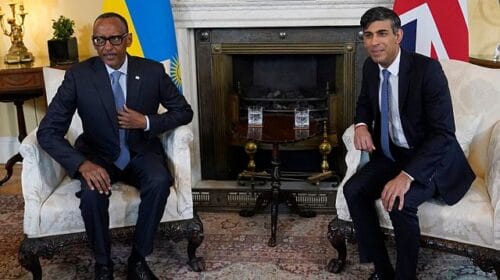African Development Bank and partners roll out comprehensive report on the state of gender equality in Africa

The African Development Bank, the United Nations Economic Commission for Africa and UN Women unveiled details of its Africa Gender Index report during a virtual global dissemination event on Tuesday, 1 December 2020.
The Africa Gender Index is the most comprehensive measure of the state of gender equality across 51 of 54 African countries. It highlights the progress made in closing gender gaps in education and health, jobs and wages and political participation and leadership. The aim of the Index is to provide governments and partners with reliable data – key to developing evidence-based reforms, tracking progress and evaluating the effectiveness of policies to advance gender equality.
“Our aim for the Africa Gender Index is to spark dialogue and informed debate and reform on gender equality at national and regional levels. We also hope the Index will enrich and inform the global conversation wherever Africa’s development is on the agenda,” Vanessa Moungar, Director of the Bank’s Gender, Women and Civil Society Department, told online attendees.
The online webinar drew more than 150 participants from government, development institutions, the private sector and civil society to discuss ways to accelerate progress for women and girls in Africa.
“Closing gender gaps is not a zero-sum game, but a road towards a future where everybody gains. Gender equality is a matter of economic efficiency and competitiveness, leading to the achievement of other key development outcomes,” said Thokozile Ruzvidzo, United Nations Economic Commission for Africa Director for the Gender, Poverty and Social Policy, in her opening remarks.
Collaborators on the first joint Bank-UNECA publication of the Index said the report reflected advances in gender and data statistics in Africa.
“The Index comes at the right time, particularly in the COVID-19 context, as it gives some sort of baseline of where we were prior to the pandemic,” said Papa Seck, Chief Statistician and Acting Chief of the Research and Data Section at UN Women.
“Hopefully, future editions…will tell us exactly what was the impact of the crisis and also what was the response of our countries,” Seck added.
The panelists included Martha Mbombo, Deputy Executive Director, Ministry of Gender Equality and Child Welfare, Namibia; Elena Ruiz Abril, Women’s Economic Empowerment Regional Policy Advisor for West and Central Africa, UN Women; Jackeline Ogero, Director of Credit at Kenya Women Microfinance Bank; and Shungu Gwarinda, Interim CEO and Director of Programs at the Graca Machel Trust. The Bank’s Lead Program and Policy Coordinator in the Gender, Women and Civil Society Department, Basil Jones, moderated the panel.
The Africa Gender Index examines three dimensions: social; economic; and representation and empowerment. It presents solutions for policy measures and investments that can change the status quo and generate gains for all Africans.
The Index scores countries within each dimension and then overall, on a scale from 0% to 100%, which represents parity between women and men. The country scores ranged from 24.0% to 79.7%, with an average score of 48.6%.
Highlights from the Africa Gender Index include:
- On the social dimension, women continue to be disadvantaged in education and training despite improvements. They face health-related barriers, and are more vulnerable to violence, including sexual violence.
- The economic dimension shows that young women are more likely than young men to be in informal, low-paid and vulnerable employment. The Index recommends tackling traditional expectations about gender roles regarding unpaid domestic work, ensuring affordable childcare and paid maternity leave.
- The representation and empowerment dimension determined that in the private and public sector, senior decision-making remains mainly in the hands of men. The report notes that parliaments with a larger proportion of women tend to promote legislation for women’s needs and gender equality. When companies have a greater share of women on their boards, they perform better financially.
Click on these links to download the Africa Gender Index:
Africa Gender Index 2019 – Methodological and statistical report



